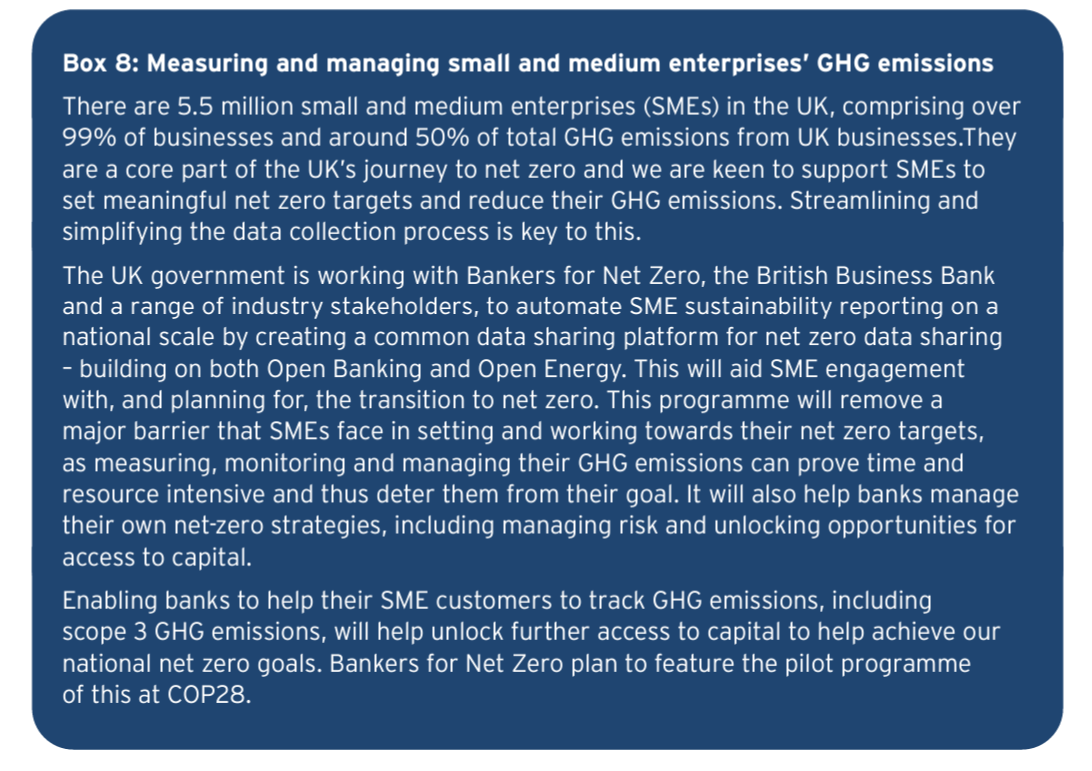Today (30/03/23) the UK’s landmark Green Finance Strategy has been published.
Bankers for Net Zero is thrilled that Perseus, our joint programme with Icebreaker One to create scalable and low-friction sustainability reporting for SMEs, has been recognised by the UK Government and included in the Green Finance Strategy.
Working with SMEs, UK banks, audit and accountancy firms, ledger providers and energy companies, Perseus will deliver a solution to automate GHG reporting for every SME in the UK with an operational pilot by COP28.
Back in January, the Skidmore Review outlined the opportunities offered by net zero and included recommendations for addressing the constraints that small businesses face on taking green actions. This has been and continues to be the focus of Bankers for Net Zero’s current work – practical solutions to help SMEs.
Heather Buchanan, Chief Executive and co-founder of Bankers for Net Zero, said:
“The net zero transition relies on supporting the UK’s 5.9 million SMEs to decarbonise. Project Perseus will be a crucial element of the decarbonisation architecture required to ensure that the UK reaches its emissions reduction targets in a way that leverages private sector investment into the UK’s net zero transition and boost growth in the process.
We look forward to continued collaboration with His Majesty’s Government and the Department for Energy Security and Net Zero to showcase the UK’s global climate leadership on driving the zero-carbon future.”
Gavin Starks, Founder and CEO of Icebreaker One, said:
“It is a huge step forward to see the Green Finance Strategy recognise the importance of automating emissions reporting for small businesses.
“To get to net zero, we need to make it easier, cheaper, and more rewarding for small businesses to measure and reduce their emissions. Just a third of SMEs see financial incentives for taking climate action – and the Federation of Small Businesses estimates that 69% don’t know how to measure their emissions.
“If banks can see the emissions of each small business, they can offer preferential lending to the best-performing companies. That can incentivise small businesses to cut emissions, and help banks manage climate risk on their loan books at the same time.”




